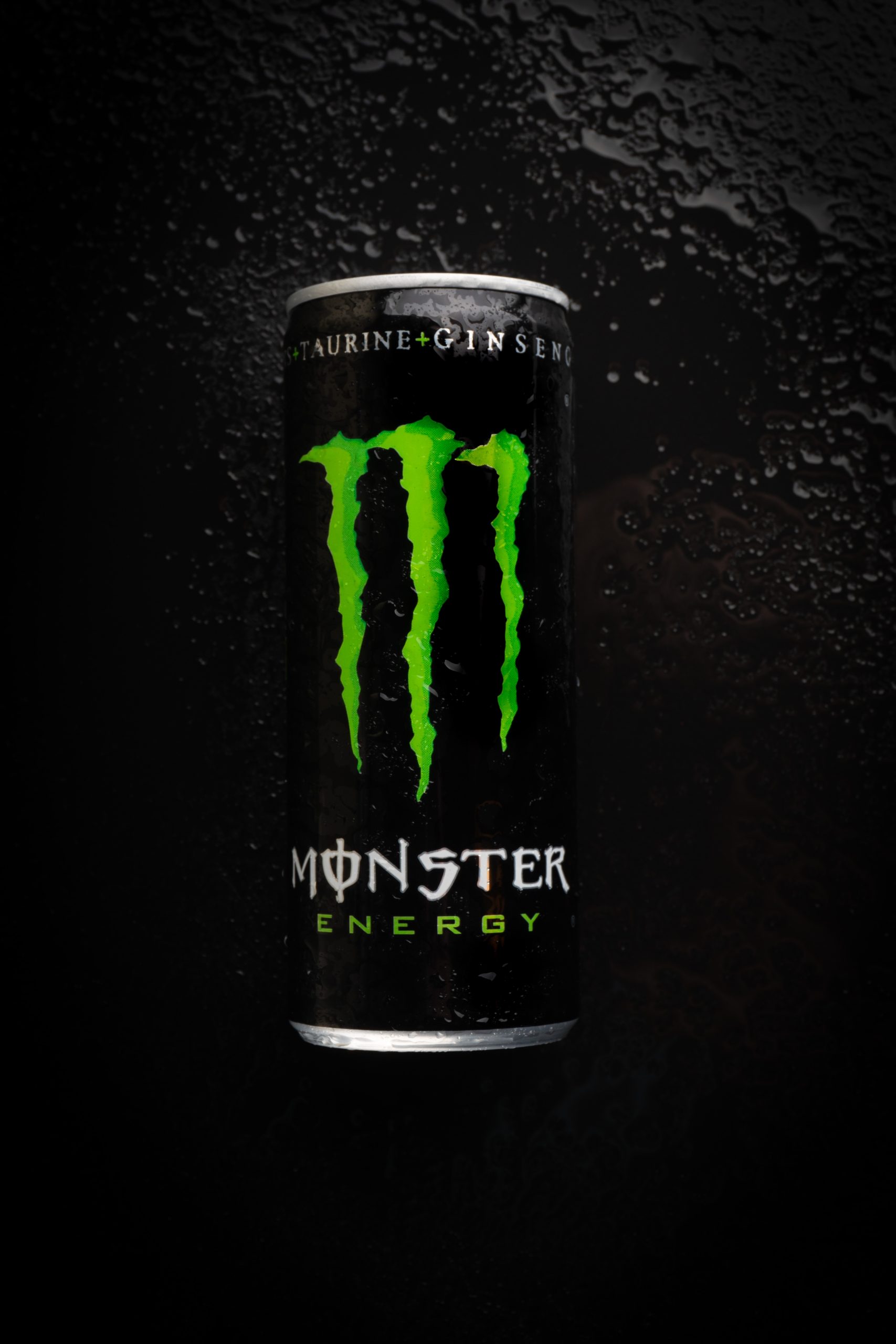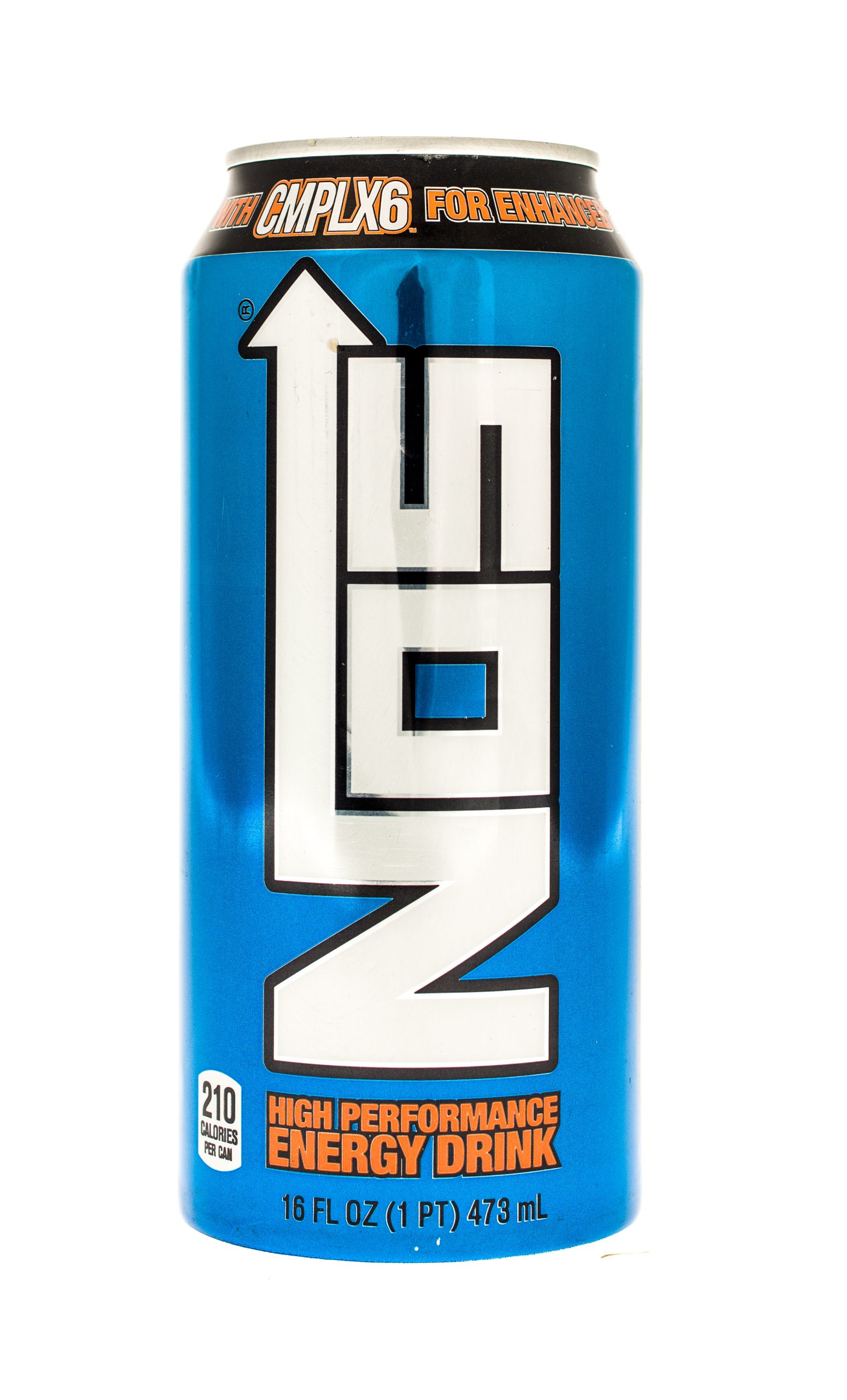The energy drink market is a multi-billion-dollar industry. Brands promise to boost your energy and improve your focus. However, a closer look at the ingredient list reveals a less impressive reality. Many of the most popular energy drinks are little more than glorified sugar water. They contain a huge amount of sugar and caffeine, but very few other beneficial ingredients. You are paying a premium price for a product that is cheap to make and offers questionable health benefits.

1. Monster Energy
A standard, 16-ounce can of the original Monster Energy contains a massive 54 grams of sugar. That is more sugar than you will find in a can of Coca-Cola. The drink’s “energy blend” is largely made up of caffeine and a few B vitamins. You are essentially paying three dollars for a huge dose of sugar and caffeine, not a sophisticated performance enhancer.
2. Red Bull
Red Bull is the original and arguably the most famous energy drink. A single, small 8.4-ounce can still packs a punch with 27 grams of sugar. Like Monster, its energy comes primarily from caffeine and sugar. The other ingredients, like taurine, are present in amounts that many experts argue are too small to have a significant effect. You are paying a very high price per ounce for this iconic can.
3. Rockstar
Rockstar is another major player in the energy drink market. Its original flavor contains an enormous 63 grams of sugar per 16-ounce can. This is one of the highest sugar contents of any popular energy drink. While the brand offers sugar-free versions, its flagship product is a prime example of an overpriced sugar delivery system.
4. Bang Energy
Bang Energy built its brand by marketing itself as a “healthier” energy drink with zero sugar and added ingredients like creatine and BCAAs. However, the company has faced numerous lawsuits and controversies over its marketing claims. Critics argue that the amount of the added “performance-enhancing” ingredients is too small to be effective. They also say the high caffeine content still poses health risks.
5. NOS Energy Drink

NOS Energy Drink is another brand that delivers a huge sugar load. A 16-ounce can contains 54 grams of sugar, the same as a Monster. The brand’s marketing is heavily focused on automotive culture. However, the product itself is a fairly standard mix of sugar, caffeine, and B vitamins. You are paying for the brand image, not for a unique formula.
6. Full Throttle
Full Throttle is another energy drink brand owned by the Coca-Cola Company. Its original citrus flavor contains 58 grams of sugar per 16-ounce can. This makes it another major offender in the high-sugar category. Like its competitors, the energy blend relies almost entirely on caffeine and sugar. It offers very little unique value for its price.
7. Reign Total Body Fuel
Reign is marketed as a fitness-focused energy drink. It contains zero sugar and includes added ingredients like BCAAs and CoQ10. However, like Bang, it has faced criticism for the potentially ineffective doses of these added ingredients. More importantly, it contains a very high amount of caffeine (300mg per can). This can be dangerous for some individuals.
The energy drink industry is a masterclass in marketing. These companies have successfully convinced millions of people to pay a premium price for a product that is essentially just sugar, caffeine, and water. While the drinks do provide a temporary energy boost, that boost comes at a high cost to both your wallet and your health. In most cases, a simple cup of coffee is a much cheaper, healthier, and more effective way to get the energy you need.
What is your opinion on energy drinks? Do you think they are worth the high price? Let us know in the comments!
What to Read Next
- These 8 Drinks Destroy Your Sleep More Than Coffee Ever Could
- 6 Foods and Drinks Nutrition Experts Warn Against Once You Hit 30
- Is It Safe? What Happens If You Drink Beer Past Its Expiration Date
- 6 Drinks That Used to Be Healthy But Aren’t Anymore
- Think This Drink Is Safe? New Study Links It to Premature Aging
The post 7 Energy Drinks That Overcharge for Sugar Water appeared first on Grocery Coupon Guide.







